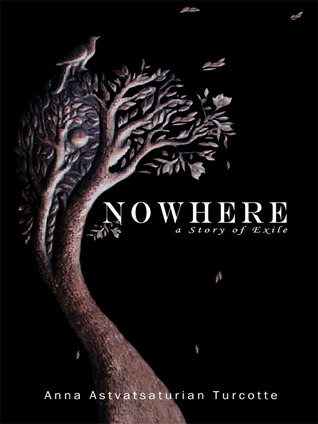For those who haven't read the book, I'll give a short summary. Anna Astvatsaturov (the Russified version of their name) and her family were Armenians living in the city of Baku in Azerbaijan. In the late 1980s the residents of Nagorno-Karabagh, an Armenian province in Azerbaijan, held protests demanding that they be allowed to separate from Azerbaijan and join Armenia. This caused the Azeri people and government to attack Armenians in Baku and other Azeri cities. Life for Anna, her family, and all other Armenians in Azerbaijan became more and more dangerous. The book describes the changing attitudes of their neighbors, the other students in the schools, their teachers and others in the city. Some Armenians were attacked, badly injured and even killed. Finally, Anna's father decided that the family had to leave and move to Armenia. Their life in Armenia as refugees, though, while safer was still very bad. Armenia in the first years of independence had very high unemployment and it was very short on food and fuel. Some Armenians took it out on the refugees. Anna was rejected in school because her primary language was Russian, not Armenian. The family applied to emigrate to the United States and, after many delays, they were allowed to.
Joe commented that he compared Anna's experiences in Azerbaijan and Armenia with what is going on in the world now. There are so many refugees and in many places they are treated like Anna's family was in Armenia.
Azad talked about the result on the Azeris of the Nagorno-Karabagh war. It is reported that there were about 1,000,000 Azeri refugees as a result of that war.
We talked about life in Armenia before and after the split from the U.S.S.R. Many people in Armenia would like to go back to the life that they had before the split. We briefly discussed the way that the Soviet government distributed manufacturing around the country such that no region could be independent. All of the regions depended on each other in order to get everything that they needed to live. After the U.S.S.R. split up, many of the factories were useless.
Azad pointed out how Anna's father carried kitchen knives in order to protect his family. Azad commented on how his father always kept a loaded gun under his pillow because of his experience in the genocide.
We talked about restrictions on immigration to the United States, what it had been like 100 years ago, how quotas were established, how easy or difficult it was for different groups to get visas. We also noted that Anna's family was delayed at the end until the Soviet Union granted them visas to leave the country.
Andrea brought up how the stress which was built up by each of the troubles that she and her family experienced could end up affecting them for many years.
Azad, in noting how Anna was rejected while she was in Armenia because she didn't speak the Armenian language, said that he had experienced that recently. When he was traveling in Armenia with his family he was criticized for not having taught his children to speak and understand Armenian.
We briefly discussed how Anna, after having to flee from Baku because of the danger, still missed it and all of her friends. She wrote a lot of letters to them, but got very few responses. Her time in Armenia was not enjoyable, yet she missed it while living in Moscow before going to the U.S.
Azad commented on a discussion that Anna's father had with his brother before going to the U.S. The brother said "You are going there with nothing! You don't speak the language! And who knows what's going to happen!" Her father responded "Yes, but living in a cold basement in Kanaker, hungry, isolated and waiting for a bright future won't do anyone any good. America is extending a hand to us when no one else wants to help. Not even our own Motherland. You are right. It is scary. it's a huge step and I will do everything possible so that my children have a good life." Azad followed that it was the same for all Armenians who migrated from Western Armenia to the Western World.
Here is follow-up information about what happened to Anna and her family after the end of the book. They ended up being sponsored in the U.S. by a church in Wahpeton, North Dakota. She graduated from high school in Wahpeton, got her degree from the University of North Dakota in Grand Forks, and then got a law degree in Massachusetts. For a least a few years after getting her law degree she was active in fighting for human rights at the International Court of Law in The Hague. Her parents still live in Wahpeton and her father is a nationally recognized artist.
The book for next month is still under discussion. Vote.
Next month's book club meeting will be at the St. Anthony Park library on November 21, 2019. I hope to see you all there.
Leroy Erickson
 The ACOM Book Club met on Thursday, October 17, 2019, at the St. Anthony Park library in St. Paul. In attendance were Azad, Tom, Al, Andrea, Joe and me. For snacks, Azad provided date cookies and Andrea provided dates. The book for this month was "Nowhere a Story of Exile" by Anna Astvatsaturian Turcotte.
The ACOM Book Club met on Thursday, October 17, 2019, at the St. Anthony Park library in St. Paul. In attendance were Azad, Tom, Al, Andrea, Joe and me. For snacks, Azad provided date cookies and Andrea provided dates. The book for this month was "Nowhere a Story of Exile" by Anna Astvatsaturian Turcotte.